RichesArt Gallery hosts American History, an interactive art exhibition featuring the works of DeLoné Osby, Xavier Alvarado, Lakeem Wilson and Chris Tobar.
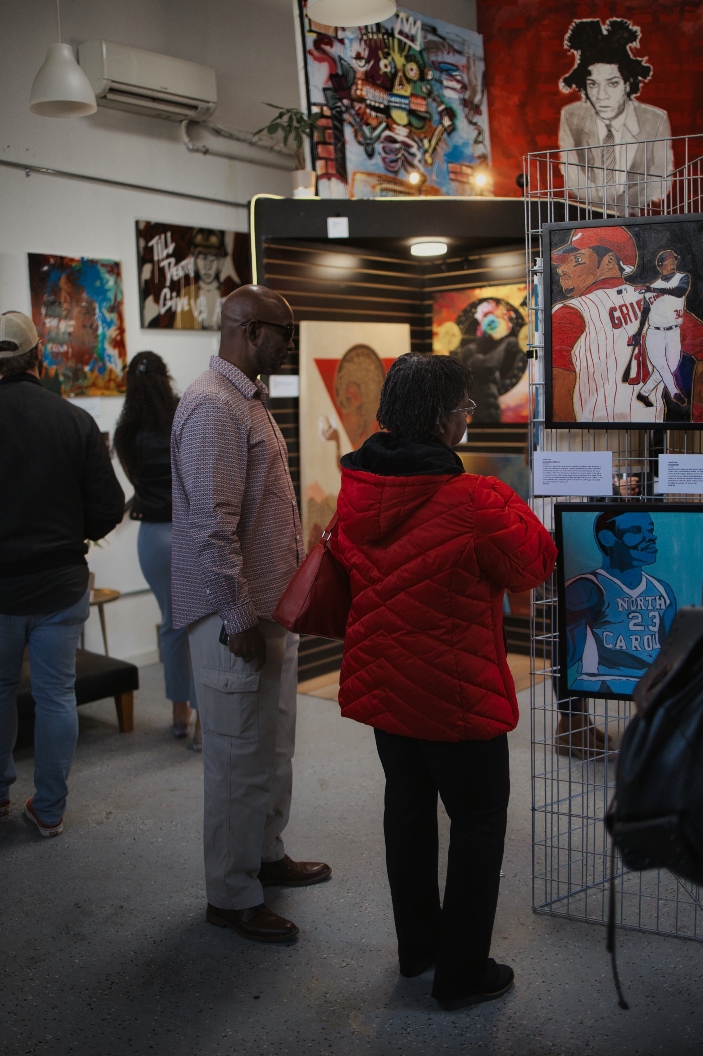
By Cy White, Photos by Big Hat Media
Black-owned art gallery RichesArt Gallery has been an outspoken voice for Black artist in Austin. As the city’s only Black-owned art gallery, its presence serves as a reminder that Black artists are a driving force in the Austin community. From music, to film and, yes, traditional art, Black artists have continued to set a cultural standard. For the month of February, the RichesArt Gallery hosts American History an interactive art exhibit that highlights the importance of acknowledging a central truth. Black history is American history. Nineteen local Black artists, including multimedium artist DeLoné Osby, display artwork telling their stories of how their Black experience is paramount to the telling of American history.
Osby and RichesArt Gallery founder, Richard Samuel, took time to answer some questions about the exhibit and their perspectives on “American history.”
Can you both please introduce yourselves to our readers?
DeLoné Osby: Hey, my name is DeLoné Osby, and I am a multimedium artist specializing in pyrography.
Richard Samuel: Hello, my name is Richard Samuel, artist and owner of RichesArt Gallery.
Firstly, Mr. Samuel, could you speak a bit about RichesArt Gallery? What was your reason for opening the gallery?
RS: Well the crazy thing about it is my reasoning for opening the gallery has completely changed. Originally, I opened the gallery with my own artistic goals in mind. When I realized I was the only Black-owned gallery in Austin, my reasoning shifted to amplify underrepresented art in the city.
Can you give us a little insight about the American History exhibit? What prompted you to host the exhibit in your space?
RS: Art is a physical representation of people’s experience throughout history. Unfortunately, in traditional systems, we’re not necessarily taught about the aspects of Black history that helped shape America into what it is today. It’s my hope to shine some light on that topic with this exhibit.
How did you come across the artists who are showcasing their work at the American History exhibit?
RS: The art world is so interconnected in this city. So many creatives love helping fellow artists. Every artist featured in this show I have either met through other art events or collaborations.
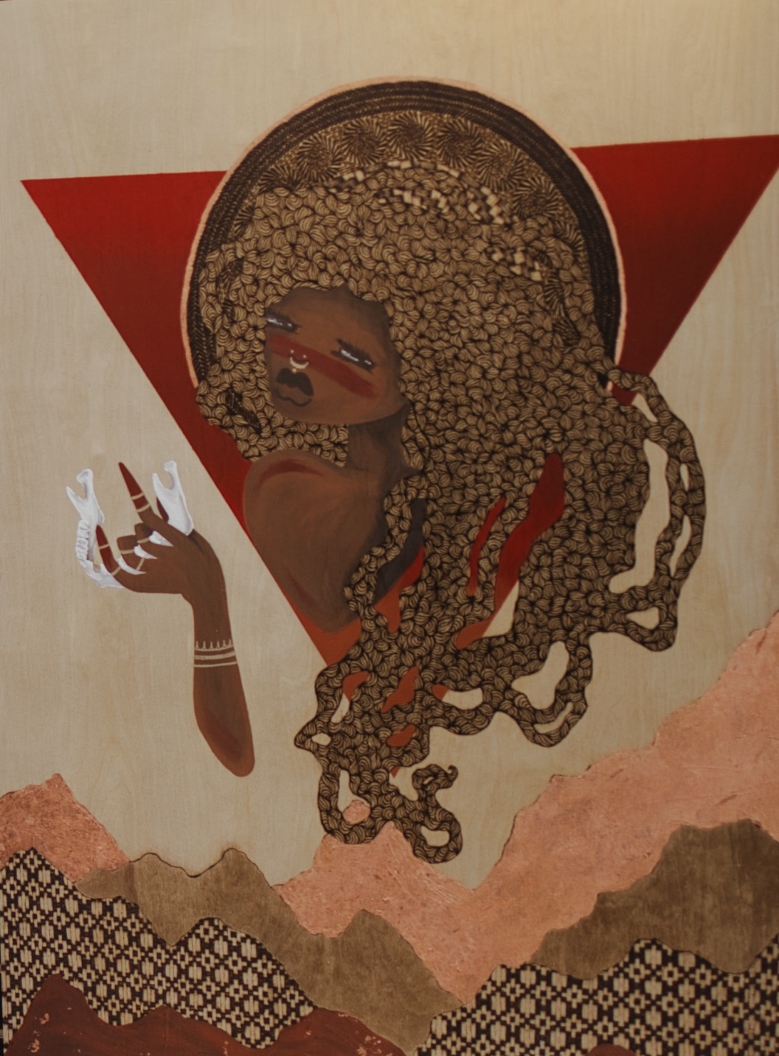
DeLoné, how did you become a part of this exhibit?
DO: Richard Samuel and I have followed each other on Instagram for a while so we have been a fan of each other’s work. He reached out to me and told me what he was trying to create with not just this show but the gallery, and I knew I needed to be a part of it.
What was your process of selecting the pieces you wanted to showcase at the exhibit?
DO: When Richard told me the theme was American History through the Black lens, I had a piece I had been working on that pays homage to both my Black and Indigenous roots.
Can you tell us the story behind one of the pieces that will be on display?
DO: The piece I am showing is titled “Woven.”
It is about the weaving together of my heritages and how I get to be a voice to my ancestors. I burned the patterns of a Cherokee and African basket weaving pattern I found. All of my work centers around healing and breaking generational curses. But this piece is my acknowledgment of how much more work I have to heal that generational trauma.
Can you both tell us what your interpretation of “American history” is?
DO: To be very blunt, American history is a very one-sided subject. The fact that “Black History” is only taught as such, and not the history of us all is something I find disappointing. But I also believe it should not just be about our struggles. It should also center our joy and triumphs. It should acknowledge our hardships, but also the times when we come together in unity to fight for each other. I try to focus my work around this.
RS: An incredible journey. Though it is often taught to us one-sided. I believe there can be many things to be proud of and to learn from when history is shared authentically and inclusively. In this exhibit, artists will interpret and share the often untold story of the Black experience in American History.
Can you both tell us your top 3 pieces of art (painting, photography, music, etc.) that define “American History” for you?
DO: Nina Simone’s “Why?,” Bisa Butler’s “Kamaria at the Savoy,” Jonathan Bachman’s photograph of Ieshia Evans.
RS: Billie Holiday’s “Strange Fruit,” Jean-Michel Basquiat’s “The Guilt of Gold Teeth” aka “the 40 million dollar painting,” photography of Emmett Till.
Can you both tell us why you believe an exhibit like this is necessary in 2022?
DO: I believe honoring and acknowledging our past is the only way to move forward. Until we can truly do so, we will stay stagnant and complacent. Art has a way of moving that stagnant energy.
RS: It’s always important to appreciate the history that came before you. Those who fail to learn from history are doomed to repeat it.
Can you both tell us what kind of statement you hope to make with an exhibit like this?
DO: For people to remember where we come from in an effort to create a better future. To remind people to keep the energy. The work is not done.
RS: To make sure people realize the relevance of the Black experience to our American History. 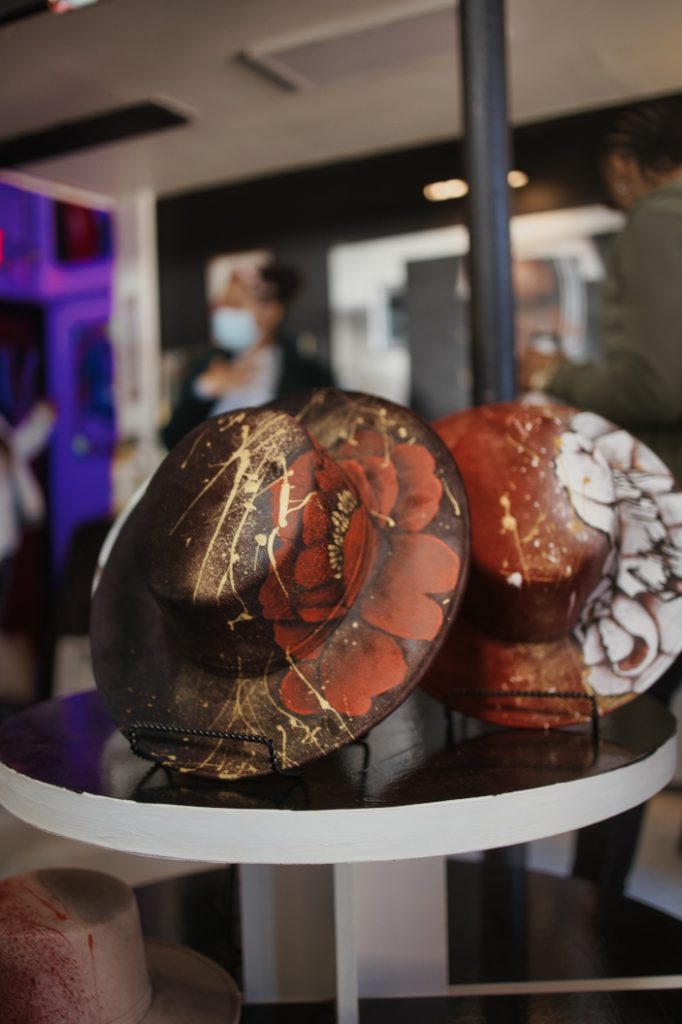
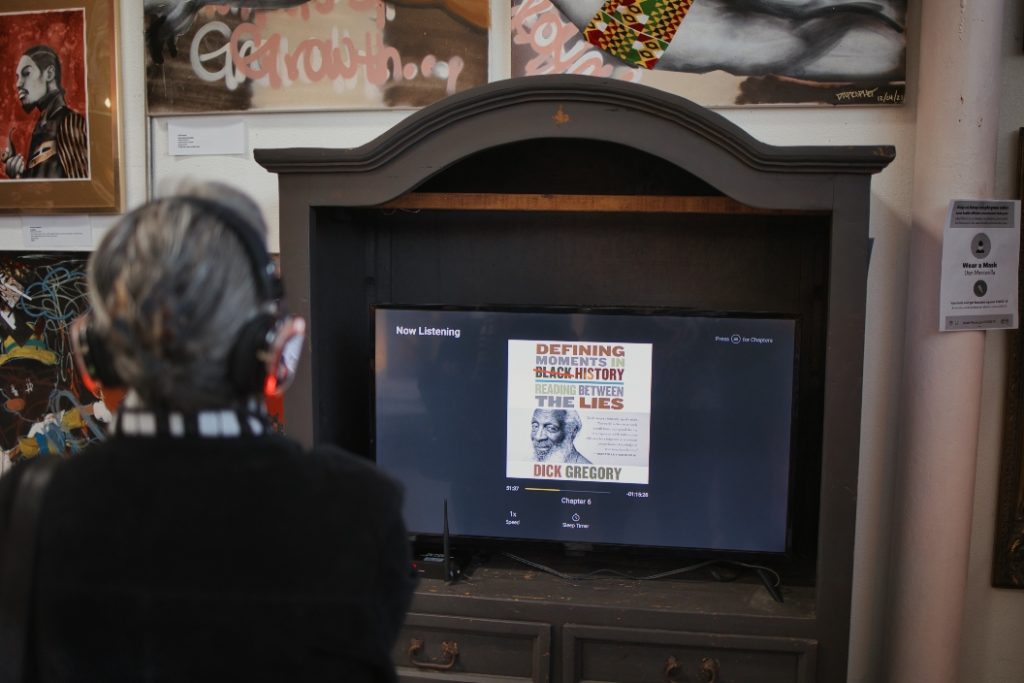
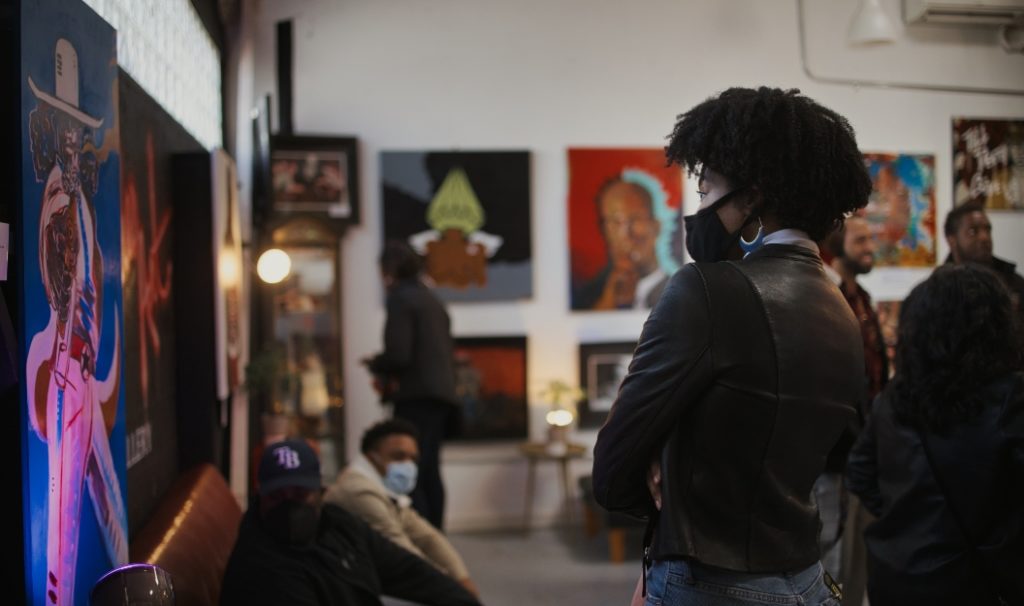
Any final thoughts?
DO: I think it is important to remember the Black art scene especially in cities like Austin. So many people I have told about this show did not know there were this many of us here, and I think that is a shame. We are here. We’ve been here.
RS: If you’re ever on the East Side, please swing by the gallery and support amazing local artists like DeLoné. In addition to this exhibit, the gallery hosts a variety of diverse programming throughout the year that includes curated art exhibitions, interactive watercolor classes, figure drawing classes, neighborhood block parties and more. Look forward to seeing you at the gallery.
American History officially opened on Feb. 3. RichesArt Gallery held an opening reception on Feb. 5. The exhibit remains open until Feb. 28. Reserve your spot at the gallery to experience the exhibit for yourself.
